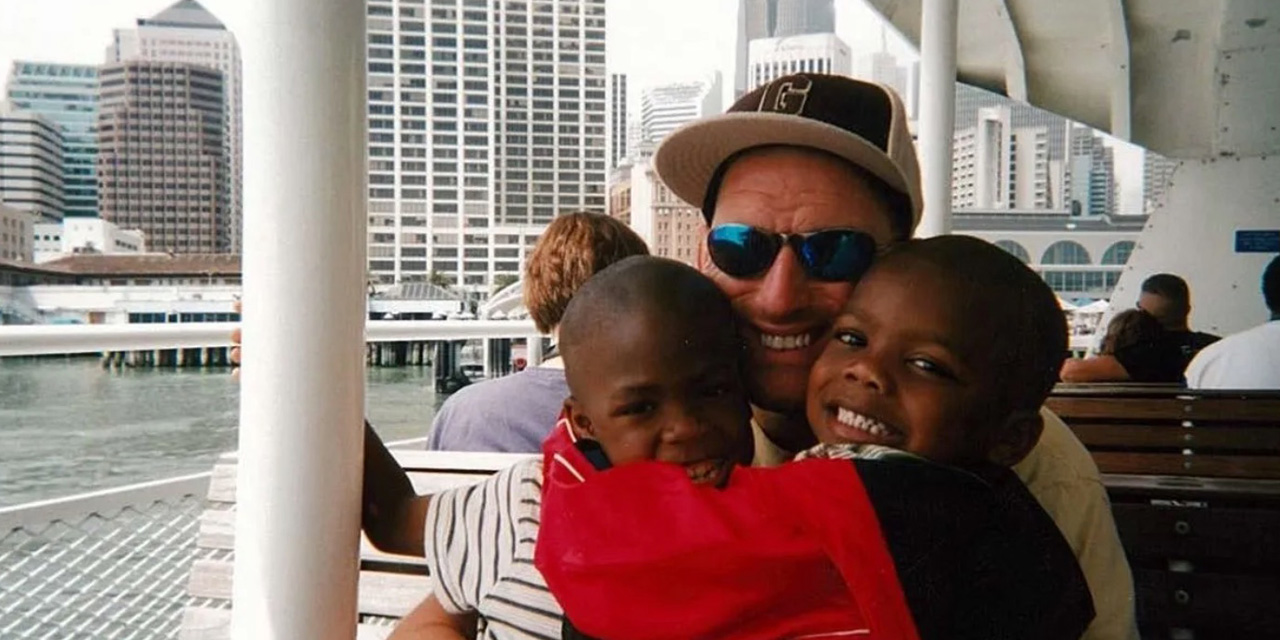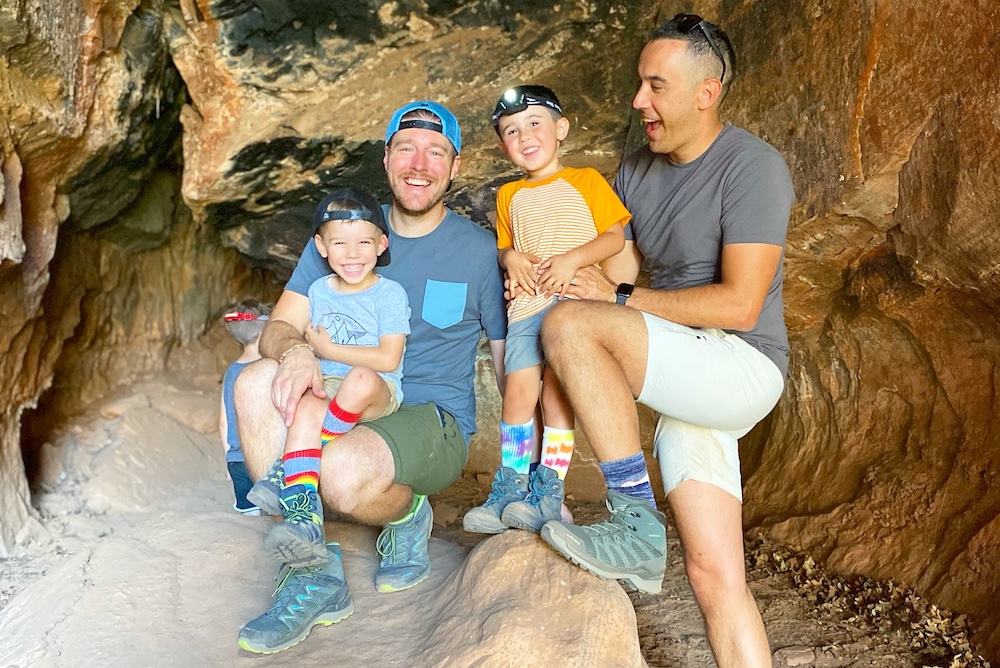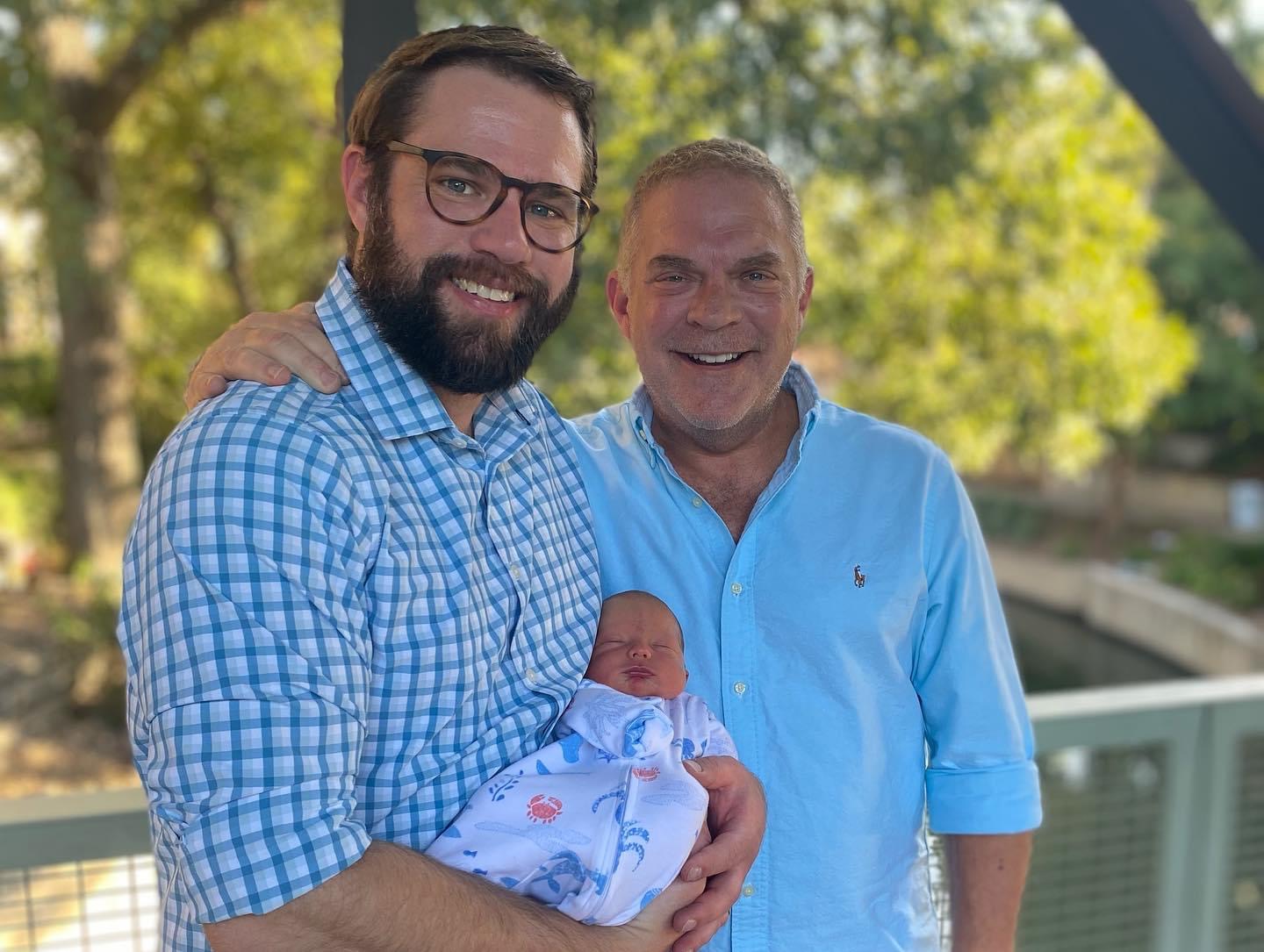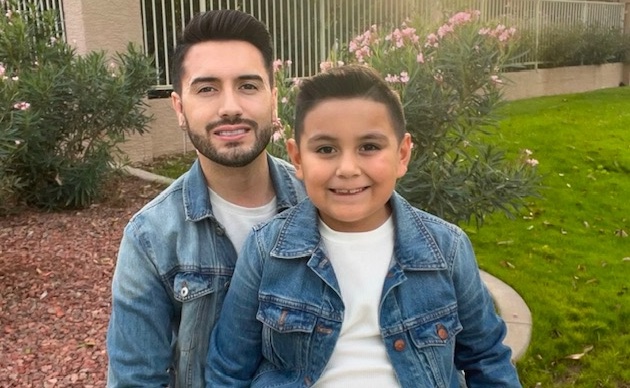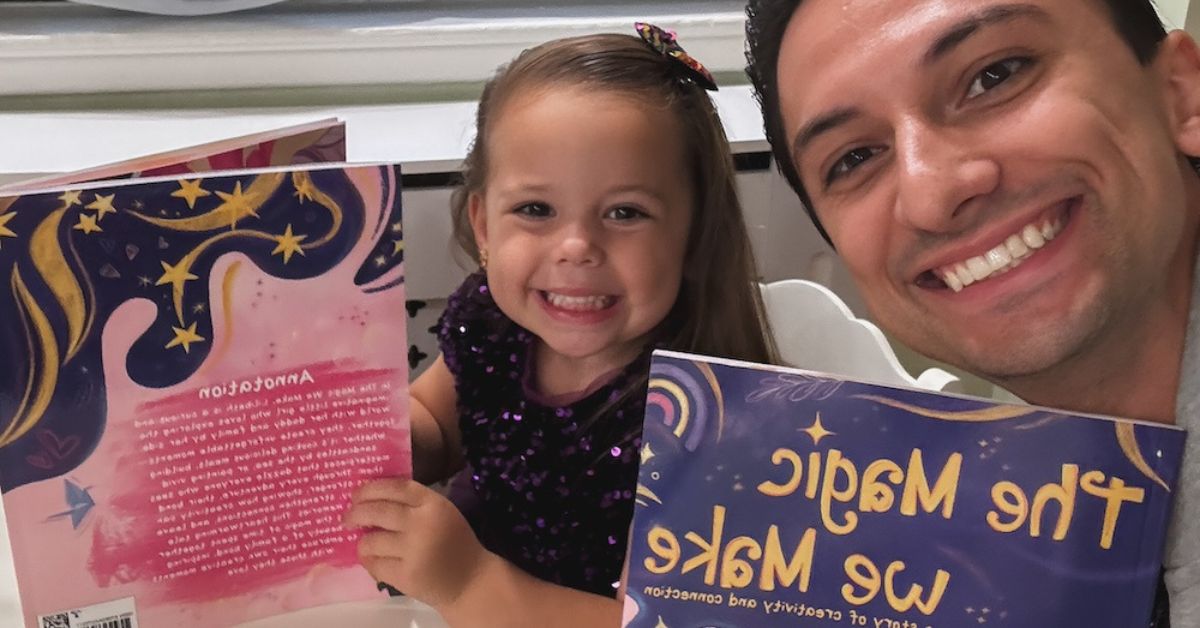Editor’s Note: In light of George Floyd’s death, this month, author Joseph Sadusky — who has been sharing excerpts from his book Magic Lessons: Celebratory and Cautionary Tales about Life as a (Single, Gay, Transracially Adoptive) Dad each month —will share two posts that deal directly with issues around raising black sons. This is the second, “White,” which addresses what the author doesn’t know, as a white gay man, raising African American sons. Read previous installments here.
My kids are black. My neighborhood is mostly black—until recently, every homeowner on our block who isn’t me was black. My kids’ elementary school was primarily Latino and Asian. Among their California aunts, uncles, and cousins are a number of African Americans, a mixed Cuban Irish, a Chinese American, and a Mexican. Their caretakers, babysitters, tutors, and so on have included an Asian American, a Latino, and, again, a handful of black folk for good measure.
For those who haven’t been following closely, I am white.
Which means . . . well, maybe nothing, ultimately. The reality is that for over ten years, the boys and I slept under the same roof, and woke up under the same roof, and were a family under the same roof. I’m grateful that in the 2000s and 2010s, a single white guy having two black kids means a lot more (less?) nothing than it would have even a decade, and certainly a generation or century, ago.
When I was in training at the adoption agency, the staff spent a fair amount of time on transracial adoption. They emphasized how important it was for the parent(s) to include in the child’s life people who looked like the child, traditions that reflected the culture of the child, and experiences that involved an understanding of the racial reality of the child.
In other words, don’t try to raise your nonwhite child white.
On the one hand, I had to laugh: Come to my neighborhood, folks. But on the other, I get it—or maybe it’s more accurate to say, I get that I don’t get it. As amazing as I—sometimes successfully—try to be, the experience of having me as their dad is, by definition, different for the boys than if they had been raised by one or more black folk. There are social, identity, and other realities that I can’t even pretend to understand, let alone engage with them about.
So I tried to do the next best thing: to let them know that I don’t know, to make it clear that there are ways in which their reality is and will be fundamentally different from anything in my experience. And then I did the next next best thing: encourage them to seek out, check-in, and bond with other black folk, whether in our family or in their own circles.
And then the kids did what kids do everywhere: They made the connections to whichever peers and adults they felt like. Most of whom weren’t black. (On the other hand, when Daveon moved from the melting-pot Bay Area to a state known for its overwhelming whiteness, bonding with the three other black males he met became very important, indeed.)
I like to think that being a gay man gives me some measure of empathy for what otherness is like. But again, empathy and understanding are two different things, and the “My pain is just like yours” line doesn’t cut it. I’ve never been stopped by the cops walking to school, nor followed in a store—just two examples of things that the boys experienced multiple times before they graduated high school.
I also encourage them to let me know if anything ever comes up for them about being raised by a white (and/or single and/or gay) man. I tell them that I’m a pretty tough cookie—I can handle it. So far, not a peep—my kids are nothing if not extremely loyal. But who knows what may come down the line.
Daveon once reported feeling like an Oreo, “black on the outside but white on the inside.” As someone who’s more comfortable obsessing over my failings than my successes, I immediately started to question whether there was more I could be doing to promote Daveon’s black identity. I never came up with a clear answer—and I’m not sure whether, as his white dad, I could even authentically try to accomplish this. How does a white person encourage a black person to feel more black? What would that even look like?
When I was teaching special ed years ago, a white administrator decided that we needed to celebrate Kwanzaa, given that the student population was almost entirely African American. We held the event, lit the candles, explained the principles—and then got roasted by the kids, who complained unanimously: “What is this stuff? We celebrate Christmas.” By all means, if you’re a transracially adoptive parent, listen to the trainers. Include in the child’s life people who look like the child, traditions that reflect the culture of the child, and experiences that involve an understanding of the racial reality of the child. And all the while, let your kids tell you who they are. They’re going to be that, anyway, so you might as well get comfortable with it.

